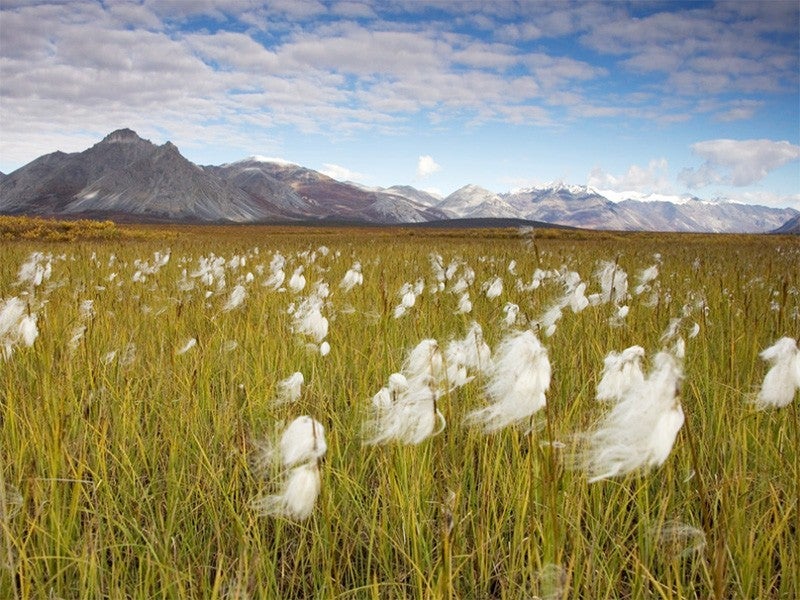Selling this cherished Arctic landscape to the highest bidder is a grievous mistake
Part of the Arctic National Wildlife Refuge risks being transferred to the hands of the fossil fuel industry.

This page was published 8 years ago. Find the latest on Earthjustice’s work.
A version of this piece first appeared as an op-ed in The Guardian.
Arctic National Wildlife Refuge is one of the last intact wild landscapes on Earth – and the largest wilderness left in the US. The 19.6 million-acre swath of mountains and tundra is publicly owned and ecologically unique. Now, thanks to the Republican tax bill making its way through Congress, a part of the refuge we’ve long fought to protect risks being transferred to the hands of the fossil fuel industry.
History will judge the decision as an egregious error.
The Arctic Refuge is long revered by writers and photographers, and iconic among the ecologically unique wildernesses that conservationists have sought to protect since the early 20th century. The Arctic Refuge can never be restored to its original majesty once roads and pipelines are built, wells and drilling pads are dug, and oil is pumped and spilled.
Public research polling shows that a majority of Americans are strongly opposed to drilling in the Arctic National Wildlife Refuge. Analysis also shows that the entire premise for opening the refuge to drilling – to raise revenue to help pay for tax breaks for corporations and the wealthiest Americans – is unrealistic and will do nothing to offset the projected budget deficit. Nevertheless, senator Lisa Murkowski and other drilling proponents forced this controversial measure through as part of the tax bill, which was approved by the US senate on Friday through a simple majority vote.
The threats to America’s Arctic don’t stop with the refuge. Already, we are in court challenging Donald Trump’s effort to open the Arctic Ocean to drilling after it was protected by Barack Obama. Drilling is also proposed for sensitive wildlife habitat in publicly owned lands of the western Arctic, where Trump also plans to roll back essential safeguards.
The stakes have never been higher. Long-term greenhouse gas emissions associated with extracting and burning estimated Refuge oil reserves would be staggering. Researchers have calculated that in order to successfully limit global average temperatures below a threshold widely regarded as extremely dangerous, all of the Arctic’s untapped oil must remain in the ground.
What’s more is that if all the fossil fuels that have already been leased on public lands and waters were extracted and burned, it would be impossible to avoid these dangerous levels.
Temperatures in the Arctic are increasing nearly twice as fast as the rest of the world, and the rapid changes are beginning to cause hardship for communities that live there. The indigenous Gwich’in people, who depend on the Arctic Refuge, call the area where drilling is proposed – the Coastal Plain – the “sacred place where life begins”. Their diet and culture are intrinsically tied to the porcupine caribou herd, which migrates to the Coastal Plain to give birth and raise its young. Drilling operations would harm the caribou herd, jeopardizing Gwich’in food, security and cultural identity.
This attack on the refuge is nothing less than a sellout of one of our most cherished landscapes to the highest bidder, all for the short-sighted purpose of funding irresponsible tax breaks and subsidizing the oil and gas industry. We will fight hard to protect the Arctic National Wildlife Refuge and the other public lands and waters in America’s Arctic under threat from oil drilling. We urge Americans across the country to join us.
Established in 1989, Earthjustice's Policy & Legislation team works with champions in Congress to craft legislation that supports and extends our legal gains.